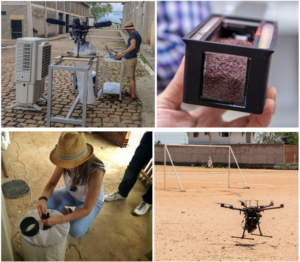
The Autodesk Foundation, created to support the design and creation of innovative solutions to pressing social and environmental challenges, has partnered with WeRobotics, an NGO based in Switzerland, in an effort to use robotics to aid humanitarian and social missions.
Most recently, WeRobotics, in collaboration with the United Nations agency IAEA and Brazilian partner, Moscamed, tested a new tool to contain the spread of the Zika virus in the city of Juazeiro in Bahia. Using drones, the team scattered 280,000 sterilized male mosquitoes. Unable to reproduce, these mosquitoes helped to reduce the population of insects transmitting and spreading diseases, including the Zika virus.
The use of drones developed and adapted for this purpose has increased efficiency and productivity, as the process of releasing mosquitoes has historically been time and labour-intensive. Using data from the Juazeiro pilot project, the team will continue to test and expand this technique into rural and urban areas over the next 6 months.
“WeRobotics is using robotics and design technologies to create positive impact,” said Joe Speicher, Executive director, Autodesk Foundation. “The project in Juazeiro is helping to enable our Autodesk vision to imagine, design, and create a better world.”
The Autodesk Foundation supports WeRobotics through a financial donation, and a software donation of Autodesk Inventor, which is essential for the mechanical design and simulation of their drone products.
Upcoming WeRobotics projects, supported by the Autodesk Foundation, are set to take place in Central America in the coming months.